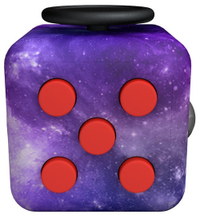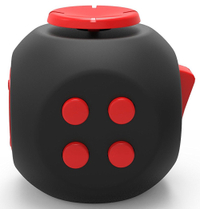Fidget Cubes: What They Are and Where to Buy Them
Fidget cubes are gaining in popularity, but they're actually quite different from fidget spinners. Here's what you need to know.
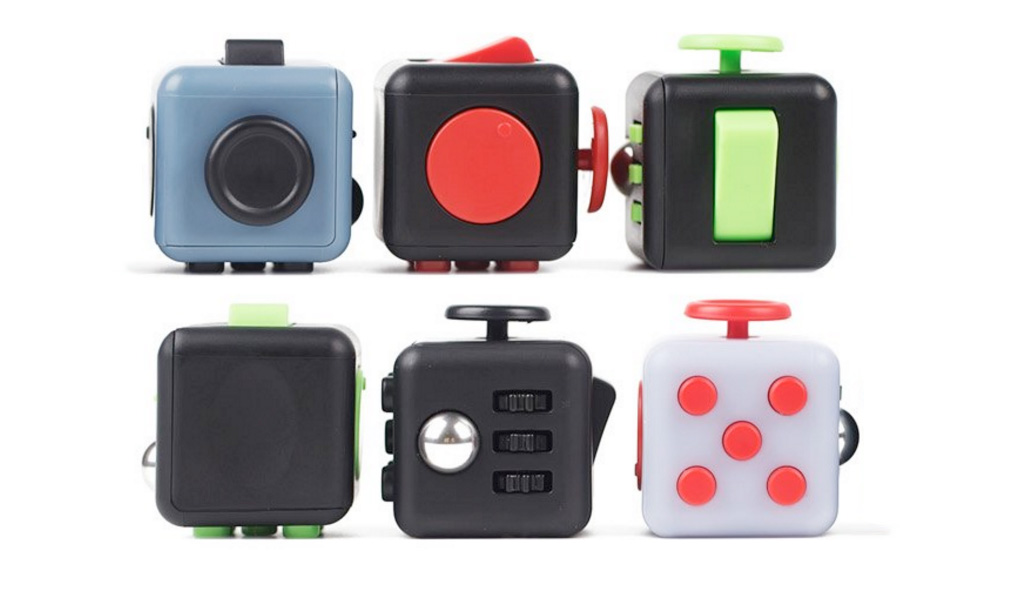
If you've heard of fidget spinners, you know that the neat little gadgets, which spin around to help you relieve stress, are all the rage. But they're not alone. In fact, another gadget, called a fidget cube, has become quite popular.

Unlike a fidget spinner, which can do just one thing, the fidget cube has several different interaction points, allowing you to flip a switch, press buttons, twirl components and much more. But the fidget cube is still not a known quantity to everyone. Here's what you need to know.
What is a fidget cube and why is it so popular?
Like the fidget spinner, the fidget cube is a small, handheld gadget that provides you with a series of sensory tools across its six sides. The original fidget cube, from a company named Antsy Labs, has a rolling ball, on-off switch, joystick and spinning disc, among other components. The fidget cube is also small enough to easily hold in one hand, so you can play with it while you're on the phone, talking to friends or doing something else.
Like the fidget spinner, the fidget cube is designed to help you take your mind off stressful thoughts. While there's no health data to support claims that these devices can help those with ADD, some people say fidget cubes reduce some of their compulsions to fidget.
The fidget spinner is widely viewed as a gadget for children, allowing them to spin it and perform tricks with it. However, the fidget cube has attracted an older audience of adults who like the idea of using it throughout the day.
MORE: Best Reviewed Fidget Spinners on Amazon
How does a fidget cube work?
Fidget cubes are about as simple a gadget as you can' find. You break it out of the box and start interacting with the functions on its sides — that's it.

While fidget spinners are only designed to spin, fidget cubes can do a whole bunch of things. And you can decide what kinds of activities you'd like to engage in when you buy the fidget cube of your choice.
Find the cube with functions you like, break it out of the box and start manipulating the functions on it. Again, those functions come in a wide range — anything from a spinning ball to a rubbing stone that might soothe your stress.
Are all the functions the same on every fidget cube?
One of the interesting things about fidget cubes is that you can get different experiences with each one you buy.
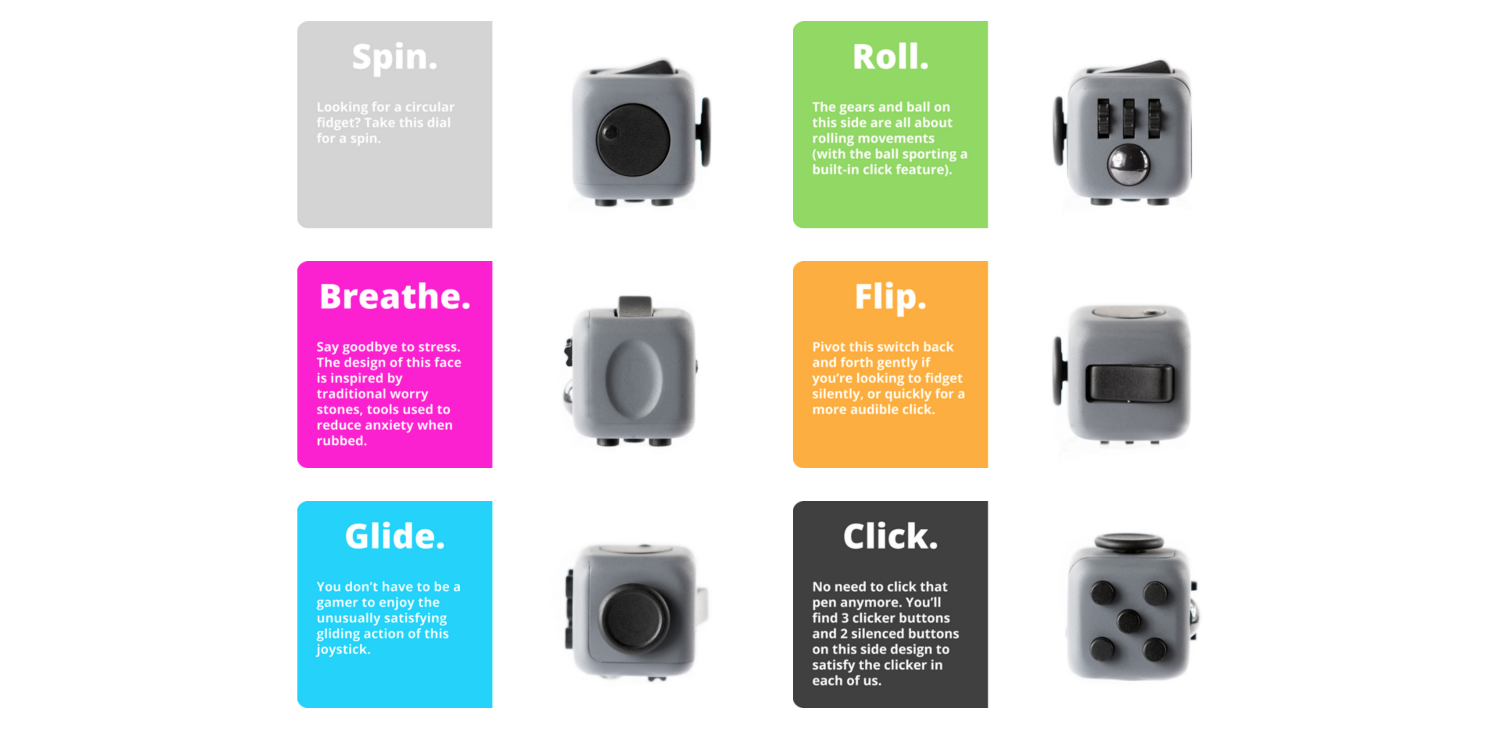
So, while the aforementioned Antsy Labs fidget cube might have gears and a joystick, among other functions, there are a slew of fidget cubes that come with dramatically different options.
That's an important difference from fidget spinners. While there is some variation in the number of spokes you'd find on a fidget spinner, when it's all said and done, you'll still be holding the middle of the device and spinning those spokes all day.
The fidget cube presents you with a range of functions that give you a bit more variety in your fidgeting. There are many new fidget cubes that deliver different functions.
I've heard there's an 'official' fidget cube. Is that true?
Technically, yes.
A company named Antsy Labs launched a Kickstarter campaign in the summer of 2016 with hopes of raising $15,000 for a project that would allow it to bring the original fidget cube to the market.

On the Kickstarter page, Antsy Labs said fidget cubes could be like pens, pencils, worry stones, key rings and ice cubes — only better. After all, the company said, its fidget cube would allow you to click, roll, spin and relieve anxiety, all while the others had just one core function.
The sales pitch paid off. Within days, the campaign exceeded the $15,000 goal, and by the time it ended, the company had raised nearly $6.5 million, making it one of the most successful Kickstarter projects ever.
While Antsy Labs might have been the first to release a fidget cube, it was by no means the last. In fact, a quick search for fidget cubes online shows a slew of companies — including Ratoop, SanWay, Trianium and countless others — all selling fidget cubes with different functions on their sides. They also come in a variety of colors, though if one thing is certain, they'll come with a cubed design.
Where can I buy fidget cubes, and how much do they cost?
Fidget cubes, like fidget spinners, might be some of the easiest-to-find products on the market.
If you're looking for an Antsy Labs fidget cube, be ready to spend some serious cash and be limited a bit in how you get one. The company sells the fidget cube on its site for $25, though it's currently running a special for $22 fidget cubes.
For a time, Antsy Labs was dealing with supply constraints, but it's now shipping fidget cube units within 24 hours of the time you place your order.
If you're looking to spend a bit less, head on over to Amazon. Generally, fidget cubes are available for just a few bucks from a range of companies, including Maxboost, T-Tek and others. CPEI even sells a mini fidget cube for as little as $2.
Not to be outdone, other prominent brick-and-mortar retailers, including Walmart, sell fidget cubes. You'll find options for around $5 from companies like Coolingup.
Even Barnes & Noble, the embattled bookseller, sells some fidget cubes.
Are there big differences between brands?
It depends on whom you ask.
If you were to ask Antsy Labs if there's a big difference between fidget cube makers, the company would undoubtedly say yes. And that's precisely why it believes it can justify a higher price.
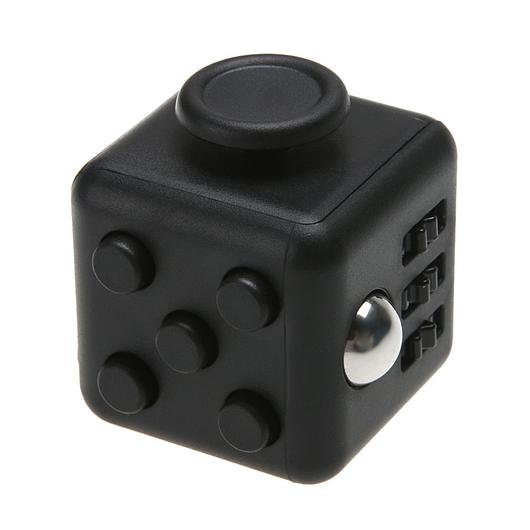
However, just about every fidget cube comes with a plastic finish and basic functions. You might find some higher-quality components in more expensive models, but there's no guarantee that it will stand the test of time.
The big difference you'll find is in the functions around the fidget cube. Different companies bundle different activities, so you can switch it up whenever you feel like it.
Still, if you're looking for a big fidget cube difference between brands, you're unlikely to find one.
What about fidget spinners? Are they the same thing?
It's important to note that fidget spinners are dramatically different from fidget cubes, even if they appear to compete in the same market.
Fidget cubes have several different functions, a different design and don't spin around in your hands. Fidget spinners, however, have spokes that you spin. You can perform some neat tricks with fidget spinners — something you can't really do with fidget cubes all that easily — but they're still a bit less capable than fidget cubes.
Are there health benefits to having a fidget cube?
If you ask Antsy Labs and other fidget cube makers, they'd say that the gadgets can definitely be used to relieve stress and help folks focus on other activities rather than on the fidgeting they do throughout the day.
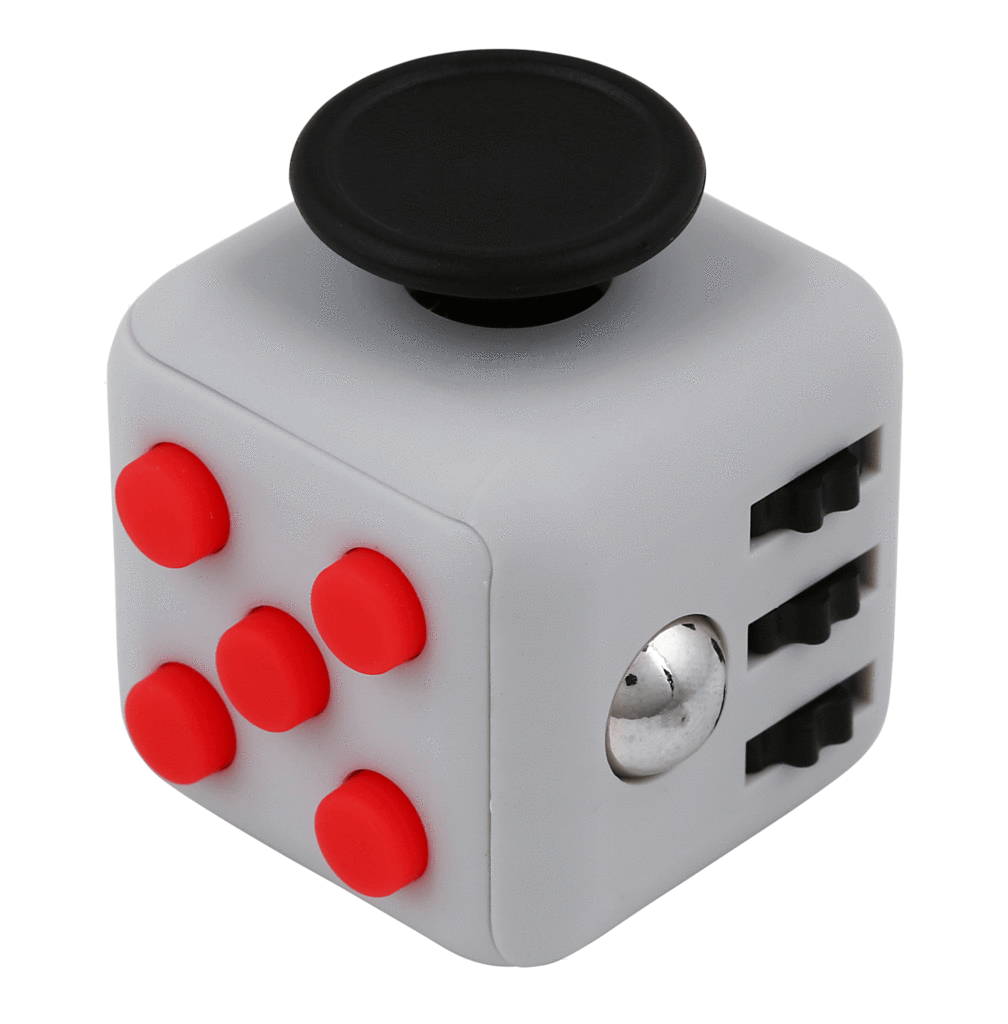
There are even some claims that fidget cubes can address some of the effects of ADD.
However, if you're looking for scientific proof that a fidget cube will positively impact your health, you won't find it. Fidget cubes are new on the scene. Our sister site, Live Science, has looked into whether fidget spinners can help treat ADD, and one expert said these toys are likely to be more distracting than useful.
Credit: Fidget Cube Co
Sign up to get the BEST of Tom's Guide direct to your inbox.
Get instant access to breaking news, the hottest reviews, great deals and helpful tips.
Don Reisinger is CEO and founder of D2 Tech Agency. A communications strategist, consultant, and copywriter, Don has also written for many leading technology and business publications including CNET, Fortune Magazine, The New York Times, Forbes, Computerworld, Digital Trends, TechCrunch and Slashgear. He has also written for Tom's Guide for many years, contributing hundreds of articles on everything from phones to games to streaming and smart home.
